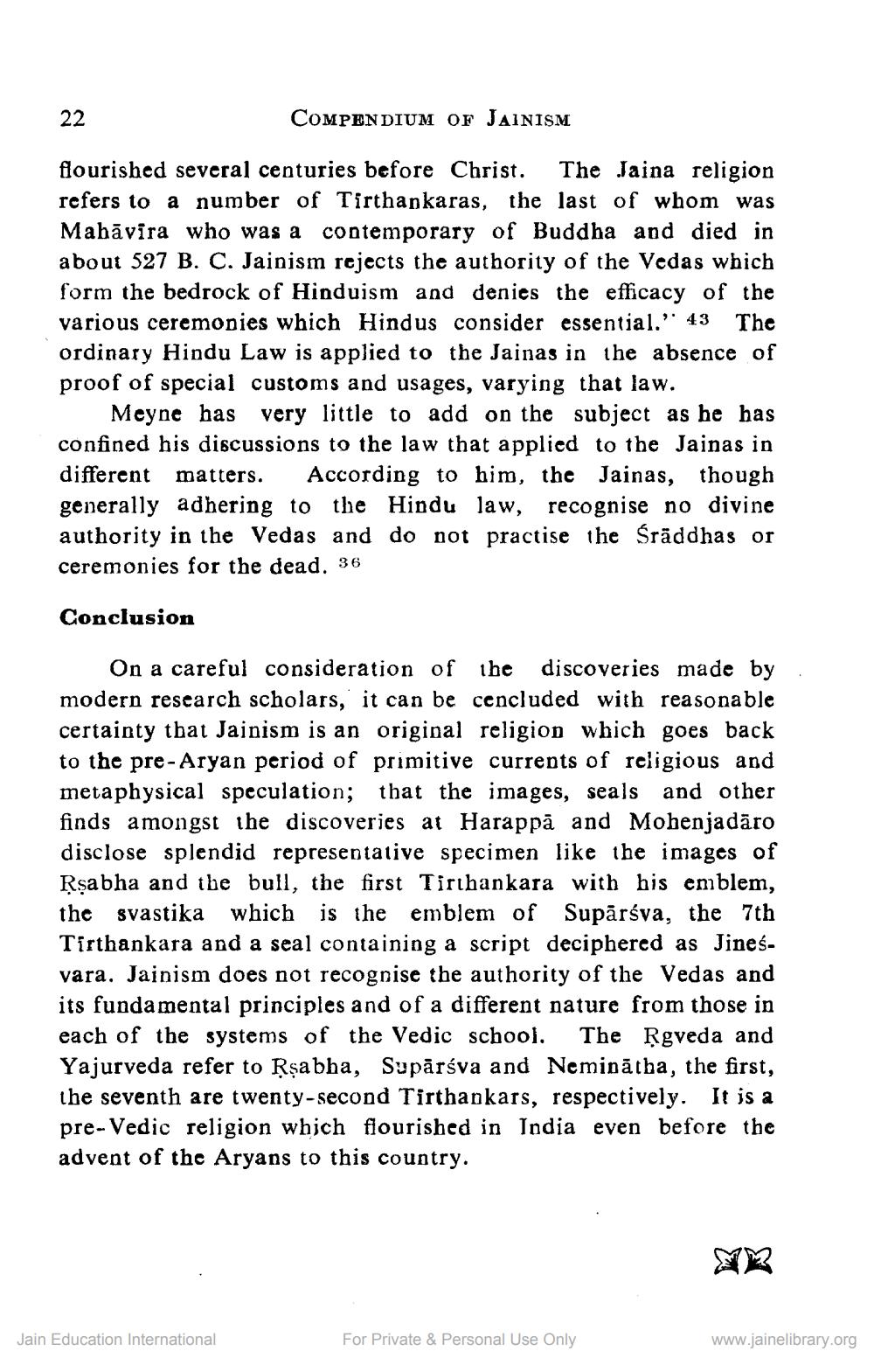________________
22
COMPENDIUM OF JAINISM
flourished several centuries before Christ. The Jaina religion refers to a number of Tirthankaras, the last of whom was Mabăvira who was a contemporary of Buddha and died in about 527 B. C. Jainism rejects the authority of the Vedas which form the bedrock of Hinduism and denies the efficacy of the various ceremonies which Hindus consider essential.' 43 The ordinary Hindu Law is applied to the Jainas in the absence of proof of special customs and usages, varying that law.
Meyne has very little to add on the subject as he has confined his discussions to the law that applied to the Jainas in different matters. According to him, the Jainas, though generally adhering to the Hindu law, recognise no divine authority in the Vedas and do not practise the Śrāddhas or ceremonies for the dead. 36
Conclusion
On a careful consideration of the discoveries made by modern research scholars, it can be cencluded with reasonable certainty that Jainism is an original religion which goes back to the pre-Aryan period of primitive currents of religious and metaphysical speculation; that the images, seals and other finds amongst the discoveries at Harappa and Mohenjadāro disclose splendid representative specimen like the images of Rşabha and the bull, the first Tirthankara with his emblem, the svastika which is the emblem of Supārsva, the 7th Tirthankara and a seal containing a script deciphered as Jineś. vara. Jainism does not recognise the authority of the Vedas and its fundamental principles and of a different nature from those in each of the systems of the Vedic school. The Rgveda and Yajurveda refer to Rşabha, Supārśva and Neminātba, the first, the seventh are tenty-second Tirthankars, respectively. It is a pre-Vedic religion which flourished in India even before the advent of the Aryans to this country.
Jain Education International
For Private & Personal Use Only
www.jainelibrary.org




